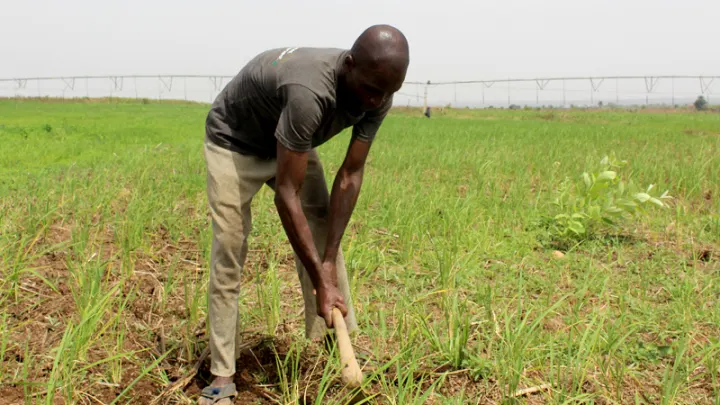By Atoyebi Nike
The European Union (EU), the European Space Agency (ESA), and Nigeria’s NASRDA are joining forces to launch a new satellite-based farming project. The goal is to boost food security and train rural youth in digital agriculture before January 2026.
Called Innovative Agriculture or Copernicus, the project will use space data to help farmers improve yields and manage their farms better.
Speaking to the News Agency of Nigeria, the EU’s Hugh Briggs said the programme is almost ready. “We are close to inauguration. It may happen by the end of the year, but no later than January 2026,” he said.
ESA will provide technical support, while NASRDA will lead local work. The space agency will help smallholder farmers with tools to understand soil quality, planting dates, and suitable crops.
Youth Training and Local Jobs
The project will train young people in rural areas. NASRDA will select and train them to work with farmers. They will learn soil testing, farm mapping, and digital tools.
“They’ll be taught how to use tech to know what to plant, when, and how,” Briggs said.
Demo Farms and Precision Tools
Seven ecological zones have been selected for demo farms. These farms will have precision tools and serve as training hubs.
They will also collect satellite data to support policy and decision-making.
A New Tech Hub at NASRDA
A modern tech hub will be built at NASRDA. It will house training labs, equipment, and data tools. The hub will serve as a national centre for agricultural innovation.
“It will support continuous learning and share tools with farmers and stakeholders,” Briggs added.
EU’s Digital Push in African Farming
This project is part of the EU’s broader goal to digitize farming in Africa. It aims to improve food production using space and digital tools.
Analysts say the programme could help Nigerian farmers deal with climate change, poor soil, and rising food costs. With the Copernicus project, the EU and Nigeria are planting the seeds of smarter, data-driven agriculture.


